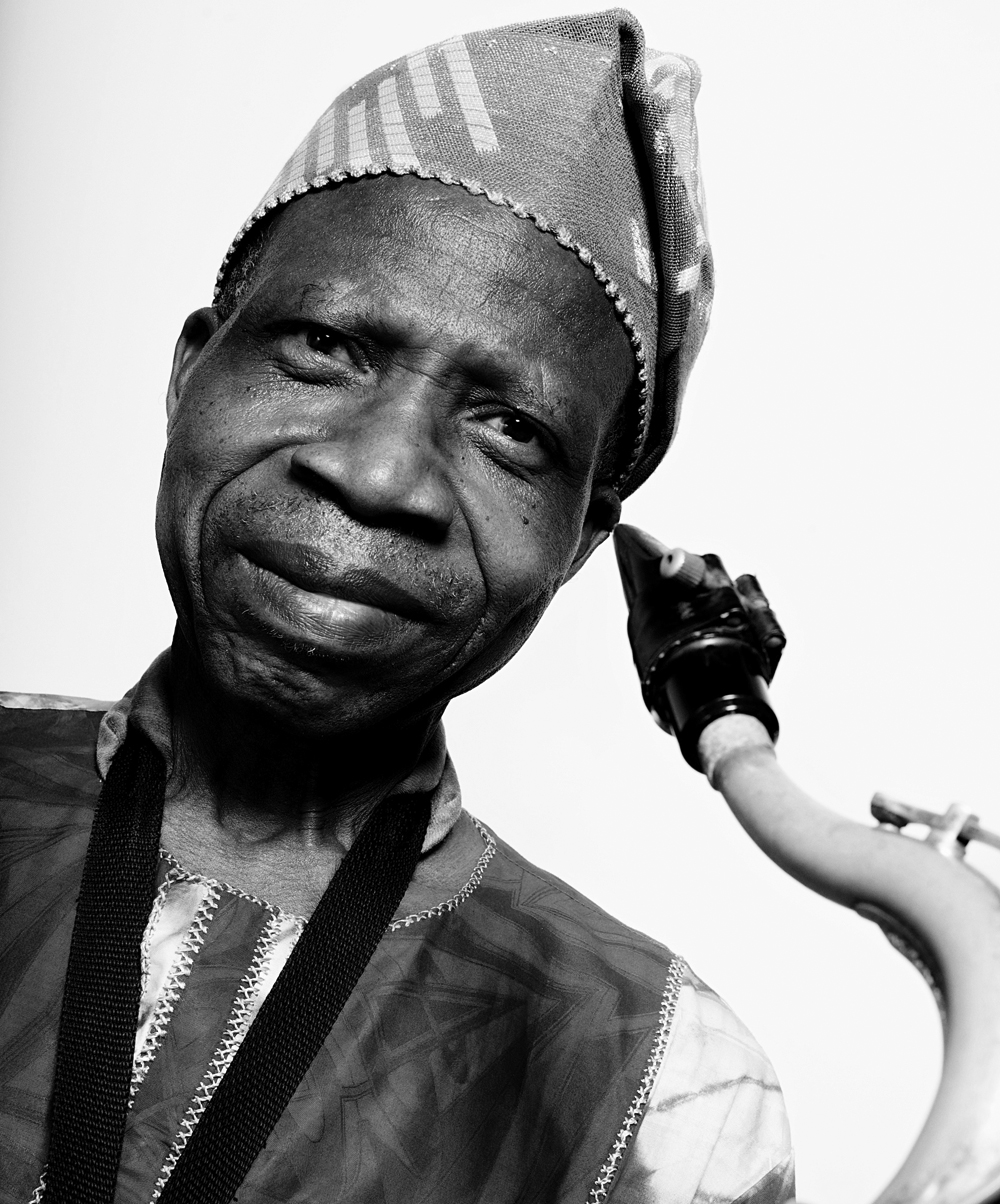Blog September 9, 2014
RESPECT: Orlando Julius
Before Fela Anikulapo Kuti, the edgiest, funkiest man in Nigerian pop music was Orlando Julius Aremu Olusanya Ekemode, or OJ for short. Despite having topped charts multiple times in both Nigeria and the U.S. since 1960, there is shockingly little reliable information available about Orlando Julius online, making him a perfect candidate for our RESPECT series. Even more exciting, OJ has recently returned to the studio, teaming up the U.K. group the Heliocentrics, to record a new album.
OJ got his start as a drummer and flautist in school in Ikole-Ekiti in western Nigeria. Later on, he took up the tenor saxophone and keyboards, and began singing his original compositions with his own band. Before making a name for himself as a leader, he played and arranged for local bands and national music idols including the legendary I.K. Dairo. By 1960, he was making waves in Ibadan himself, relying on a mix of African-American funk, soul, r&b, local highlife and traditional rhythms. His 1966 album Super Afro Soul (reissued on vinyl in 2000 by Strut Records) made him a household name in Nigeria.
Orlando's musical approach mirrored that of contemporary pioneers including Ebo Taylor and Gyedu Blay Ambolley in nearby Ghana and Geraldo Pino from Sierra Leone. All of these performers helped redefine West African pop by taking what was hippest in the immensely popular African-American and Afro-Caribbean records being listened to across the region, and translating it for a local context. Like his counterparts, Orlando imbued his music with local meaning by using indigenous languages, rhythms and melodies while simultaneously creating a sense of cosmopolitan cool and diasporic connection by employing modern instruments, funky styles and English lyrics. In 1963, a young Fela Kuti, who had recently returned to Nigeria from music school in London, spent valuable time watching and sitting in with Orlando Julius and His Modern Aces at the Independence Hotel in Ibadan, before borrowing styles and musicians to form his first group, Koola Lobitos.
In the mid '60s, Orlando and his band toured in Europe and the U.S. In response to these experiences, and in order to keep up with the increasing competition from other local bands (including the increasingly popular Fela), this period saw Orlando's groove deepen and expand. From '69 to '73, OJ and his new band, the Afro Sounders, recorded frequently at Ginger Baker's ARC studios in Lagos. Here's an example from those recordings, "Aseni," which includes righteous tenor sax and keyboard solos as well as Yoruba vocals from OJ. This album originally came out on Phillips, but was reissued by Voodoofunk in 2012.
OJ relocated to the U.S. in 1974, where he met and performed with world-renowned musicians including Louis Armstrong, James Brown, Bootsy Collins, the Crusaders, Gil Scott Heron, and South African trumpeter Hugh Masekela. OJ recorded with Masekela on The Boy's Doin' It album and as well as with disco-soul singer Lamont Dozier. OJ is the uncredited co-author of Dozier's massive hit "Going Back to My Roots," which includes a section in Yoruba with dundun talking drums. In '76 OJ released an album partly recorded in Nigeria and partly in West Virginia, called Disco Highlife. While the beat is straight "four on the floor" disco, the horns, guitars and percussion maintain some of the classic Afrobeat sound.
Although information is spotty, it seems that OJ next settled in Oakland, California from '78 until the late 1990s. He performed with a local band called the Nigerian Allstars (which continues in the Bay Area today) which mixed Afrobeat with juju and other Nigerian and U.S. dance music styles.
In the late '90s, OJ returned to Nigeria with his African-American wife, Latoya Aduke Ekemode, then briefly moved to Ghana, where they recorded an album together, Longevity and Reclamation, released in 2006. Check out this slow-burning Afrobeat track (the bass line is reminiscent of Fela's "Coffin For Head of State,") which features Latoya rapping on the first verse.
We didn't hear much from OJ since then (which is totally understandable, since he has been making records for over a half-century) until this year, when Strut Records announced that OJ had teamed up with U.K. groovemasters the Heliocentrics to record and release an album of new and old songs. Watch for our review of the excellent Jaiyede Afro album, coming soon!








